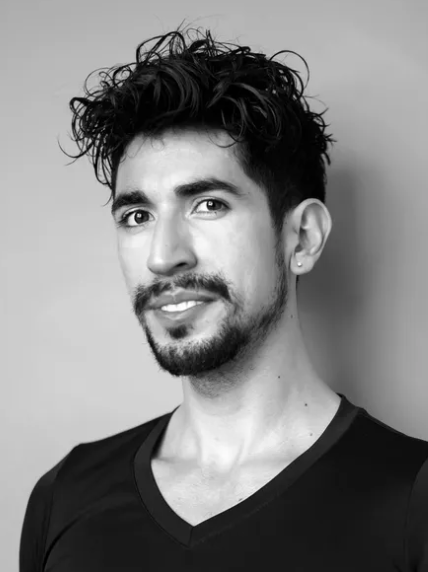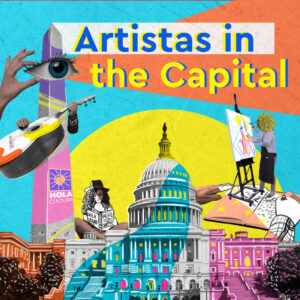
In tomorrow’s episode of “Artistas in the Capital,” Alejandro Góngora’s journey with Corazón Folklórico DC
By hola | Published

“There are a lot of different family elements I think are beautiful in folkórico and the general dance community,” says the Mexican ballet folkórico choreographer and teacher.
For a time in high school when Góngora and his mother were homeless, his school’s folkloric dance club provided the support and community he needed most. He believes everyone should have the opportunity to participate in cultural education, regardless of their family’s background or financial means. It’s a mission that resonates with us here in D.C., where the average Latino resident earns $15,741 less a year than the average white resident, according to an analysis of U.S. Census data by the DC Health Matters Collaborative, a coalition of hospitals and community health centers.
In tomorrow’s episode, Góngora emphasizes the importance of creating an inclusive and diverse space and how that vision motivated him to start Corazón Folklórico.
Góngora says the dance organization has faced many challenges along with its success, including not having costumes, funding or a place to rehearse. Now, they have a waitlist for enrollment. Excited by the potential of leaving behind a legacy, Góngora strongly believes Corazón Folklórico’s legacy should be guided by its heart and sense of community.
Join us to learn about the inspirations, obstacles and successes that have shaped Corazón Folklórico’s development.
About “Artistas in the Capital”

The interviews were conducted by interns in our Storytelling Program for Experiential Learning (SPEL). SPEL is dedicated to bringing together D.C. high school and college interns with fellows and mentors for story lab sessions and workshops that prepare them for their futures through the production of accurate digital media published on the Hola Cultura website.
— Story by María Fernanda Gómez
— Edited by Michelle Benitez
Meet our “Artistas
in the Capital”
podcast team…

Flavia Olivera
Originally from Lima, Peru, Flavia Olivera moved with her family to Mississippi when she was 7 years old. For college she headed north to the University of Pennsylvania, where she earned a Bachelor of Arts in Political Science and Government in 2021. Unsure of her next steps following graduation, Olivera moved back in with her parents for a year before relocating to New York City to seek out her professional future.
While looking for a job, Olivera found Hola Cultura and joined our team as the scriptwriter on our latest podcast, “Artistas in the Capital.” It’s a gig that involves researching each episode’s theme and artist and writing an introduction for each one.
“I love this, especially when it includes artists that are doing political things,” Olivera says.
In the future Olivera would like to work on a more politically centered podcast like our “Undocu-Life” series that followed the lives, trials and triumphs of five young Washington-based immigrants. “With everything that’s happening with immigration in the U.S., [although] very messy, it’s also very relevant,” Olivera says.
Though Olivera is not entirely sure what professional path she would like to pursue next, she would love to work at a nonprofit organization that highlights important issues faced by underrepresented communities and advocates for positive change. She has a passion for social justice and hopes to give a voice to those who need it most.
Olivera keeps her mind open and has considered two potential career paths: one in journalism and another in communications. However, she’s also considering writing movie scripts and screenplays, an interest of hers since she read the “Harry Potter” book series in middle school. Taking screenwriting classes in college deepened Olivera’s interests in storytelling and making documentaries that focus on social justice issues.




